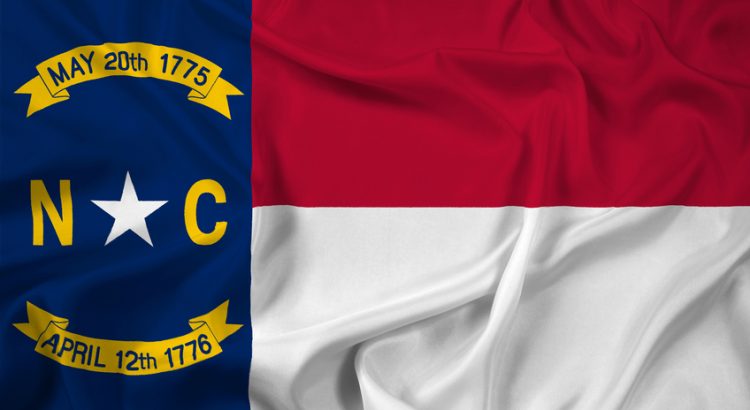“The Civil War was about conflict within the Confederacy and within the United States. But statues of Confederate soldiers erase those conflicts by portraying the South as united behind the Confederacy,” writes historian Laura Edwards. “In fact, the South was as conflicted in the Civil War era as it is now. So was the rest of the United States. And that is why the Confederate statues and their portrayals of false unity are so misleading and dangerous.”
Read More in The HillCategory: North Carolina

When Activism Came to My Hometown
“I absolutely want memorials to racism, hate and prejudice removed. They should be either destroyed, or relegated to museums with appropriate historical representation. But, I want their removal through legitimate, law-abiding processes,” writes Larry Moneta, vice president for student affairs at Duke.
Read More at Inside Higher Ed
Military Bases Named For Confederate Leaders
“Let’s not be in any doubt about what Braxton Bragg represents. He was a slaveholder who fought against the U.S. Army in order to preserve the South’s ‘peculiar institution.’ The time has come for Fort Bragg and the other bases named after Confederate generals to be renamed in honor of individuals who fought to defend the United States and the values that the U.S. Army is pledged to defend,” writes Michael Newcity, a professor of Slavic and Eurasian Studies.
Read More in the Detroit Free Press
Enrollment Impeded For Undocumented Kids in NC
Despite federal laws that guarantee access to public education for undocumented children, the majority of school districts in North Carolina are impeding enrollment, a new report from the Children’s Law Clinic at Duke University finds. “We hope that school districts will use this report to review their enrollment practices to ensure that they are compliant with the law and are welcoming to immigrant children,” says Jane Wettach, director of the clinic.
Read More in The Progressive Pulse
Bills in NC, Congress Target Companies That Boycott Israel
“The government has the power to control its own message, for example, by deciding which programs it wants to subsidize in the first place,” says law professor Joseph Blocher. “That’s what’s called government speech, and one might argue that HB 161 is just a matter of North Carolina choosing not to support certain viewpoints with which it disagrees.”
Read More in Indy Week
What is the Far-Right’s Endgame?
Historian Nancy MacLean, author of an intellectual biography of James McGill Buchanan, explains how this little-known libertarian’s work is influencing modern-day politics. “Democracy in Chains: The Deep History of the Radical Right’s Stealth Plan for America” examines Buchanan’s vision that MacLean says has become a playbook for a network of people looking to override democracy in order to shift more money to the wealthiest few.
Read More in Slate
Is North Carolina the Future of American Politics?
What really distinguishes North Carolina is that it is a quintessentially purple state, with voters almost evenly split between Democrats, Republicans and unaffiliateds. “That’s what contributes to the meanness and paralysis of North Carolina politics,” says public policy professor Mac McCorkle, a former Democratic political consultant. “… We’re so closely pitted, everything’s a battle.”

Time to Hold Legislators Accountable in Redistricting Process
“People have to pay attention to redistricting and to line drawing and to the way that districts are constructed, and they ought to demand fairness from their legislators,” says law professor Guy-Uriel Charles, founding director of the Duke Law Center on Law, Race and Politics.
Read More in The Progressive Pulse
The Paris Agreement, Climate Change, NC Coast
“President Donald Trump’s withdrawal from the Paris Agreement may have serious consequences for North Carolina and our precious coast. In his withdrawal speech, he made no reference to the fact that the Paris Agreement is the first global step in the direction of slowing down the sea-level rise,” writes
Orrin Pilkey, professor emeritus at the Nicholas School of the Environment.

Impact of Supreme Court Rejecting NC Redistricting
The U.S. Supreme Court Monday struck down North Carolina’s 1st and 12th congressional district lines drawn by state legislators in 2011. A three-judge federal court ruling had previously found that lawmakers relied too heavily on race when drawing the boundaries. “You’re likely to see state legislature be extremely careful in using race in redistricting, because uses of race are likely to be struck down by a federal court,” says law professor Guy Charles.
Listen to More on WFAE

Billboard Bills Would Mar NC’s Beauty
“Our roads and highways serve as the front porch of our state,” writes law professor Ryke Longest. “North Carolina’s natural beauty is one of our greatest assets; don’t let the General Assembly sell out our state’s roadways to support a struggling billboard industry. Our elected representatives should know better than to put TVs out on our state’s front porch.”
Read More in The News & Observer
Real Populism Was Very Different From Trump’s Pseudo-Populism Today
“For months, we’ve been told that Donald Trump’s election was a ‘populist revolt,’ working-class, alienated white Americans dissatisfied with the growing economic inequality rising up against a self-satisfied Establishment. There is some truth in this. But real populism — such as that in the 1880s and 1890s — was very different from Trump’s pseudo-populism,” writes historian emeritus William Chafe.
Read More in The Hill

